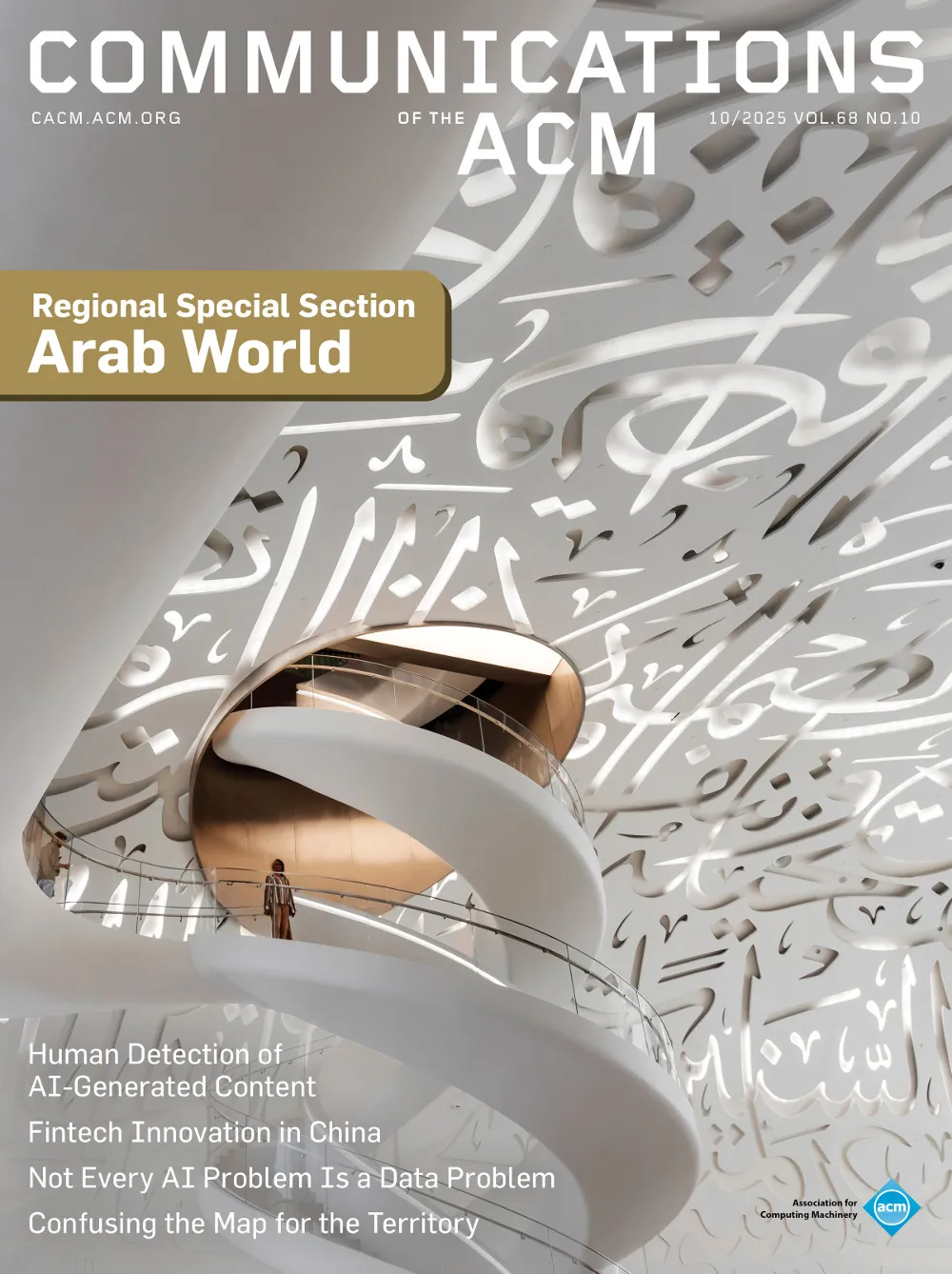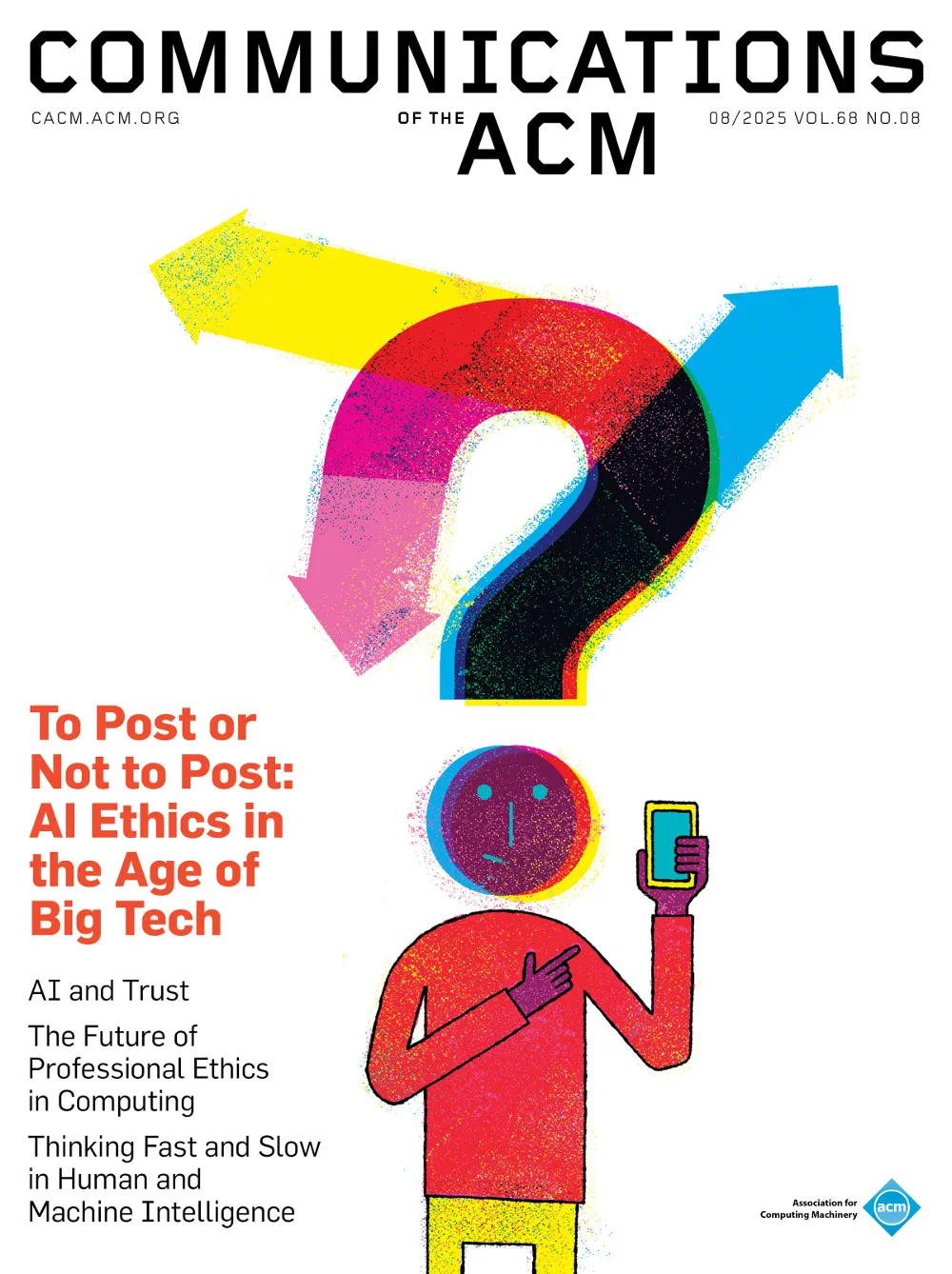Would Turing Have Passed the Turing Test?
September 2014 - Vol. 57 No. 9

Features
A recent Turing-Test competition was won by a chatterbot pretending to be a teenage boy. The media was abuzz, claiming a machine has finally been able to pass the Turing Test. The real question, however, is whether the Turing Test is at all an important indicator of machine intelligence.
As our computational tools become more and more powerful, we can anticipate that our growing knowledge of the mechanics of our world will allow us to use simulation to visualize, understand, and even design processes that we could only crudely imagine before.
Opinion Letters to the Editor
Provenance of British Computing
David Anderson's "Tom Kilburn: A Tale of Five Computers" (May 2014) was fascinating and informative, but no article on the history of British computing can avoid the precedence controversy between the Universities of Manchester and Cambridge.
Refining Students’ Coding and Reviewing Skills
Philip Guo sees code reviews providing students "lots of pragmatic learning."
Weathering a New Era of Big Data
Increased computing power combined with new and more advanced models are changing weather forecasting.
Affordable, connected, personal medical devices are slowly changing the nature of health care.
Opinion Law and technology
Accountability in Future Internet Architectures
Can technical and legal aspects be happily intertwined?
Opinion Historical reflections
Reflections on the intersection of computing and the humanities.
Opinion The profession of IT
Learning For the New Digital Age
Digital machines are automating knowledge work at an accelerating pace. How shall we learn and stay relevant?
Opinion Viewpoint
Exploratory Engineering in Artificial Intelligence
Using theoretical models to plan for AI safety.
Opinion Viewpoint
Soft Infrastructure Challenges to Scientific Knowledge Discovery
Seeking to overcome nontechnical challenges to the scientific enterprise.
Preventing script injection vulnerabilities through software design.
Privacy, Anonymity, and Big Data in the Social Sciences
Quality social science research and the privacy of human subjects require trust.
Research and Advances Contributed articles
Security, Cybercrime, and Scale
Defense begins by identifying the targets likely to yield the greatest reward for an attacker's investment.
Research and Advances Contributed articles
Online Deception in Social Media
The unknown and the invisible exploit the unwary and the uninformed for illicit financial gain and reputation damage.
Research and Advances Review articles
Optimality in Robot Motion: Optimal Versus Optimized Motion
Exploring the distinction between an optimal robot motion and a robot motion resulting from the application of optimization techniques.
Research and Advances Research highlights
Technical Perspective: Portraiture in the Age of Big Data
"Moving Portraits" is, in some sense, part of the perpetual quest to capture the perfect portrait. Its principal contribution is in adapting this age-old problem to our post-modern, big data world.
Research and Advances Research highlights
We present an approach for generating face animations from large image collections of the same person. By optimizing the quantity and order in which photos are displayed, we can create moving portraits from collections of still photos.
Opinion Last byte
Puzzled: Solutions and Sources
Last month (August 2014), we presented three puzzles concerning the Path Game and the Match Game, each of which can be played on any finite graph.
Opinion Last byte
ACM-Infosys Foundation Award recipient David Blei recalls the origins of his famous topic model, its extensions, and its uses in areas that continue to amaze him.
























